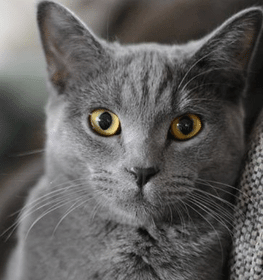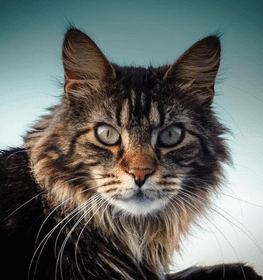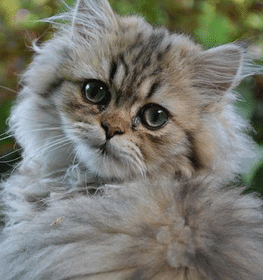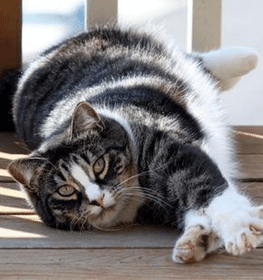Turkish Van Cat Breed Information and Facts
This page is about the Turkish Van cat breed information and what it means to own one as a companion animal. If you are considering getting Turkish Van cat breed, this profile will be helpful in deciding whether or not they are right for you!
| Group | Natural |
|---|---|
| Popularity Rank | 77 |
| Reviews | 0 |
| User Ratings | |
|
Compare the Turkish Van With Other Cats
Select at least one cat breed to make the comparsion. | |
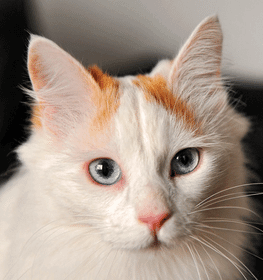 | |
| Origin | |
|
Other Names
What other names are there for the Turkish Van cat? | Turkish Cat, Swimming cat |
|---|---|
|
Price
What is the cost of a Turkish Van cat? | $800 to $1500 If you choose to purchase the Turkish Van cat, you should know that the mentioned amount of money is an average of the collected data from breeders’ sites and cat finder places. If you have a Turkish Van cat for sale, please advertise it on a reliable website to make sure the Turkish Van gets to a happy place. |
| Cost Of Ownership | Moderate |
| Breed Recognition | The International Cat Association (TICA)Cat Fanciers' Association (CFA)Fédération Internationale Féline (FIFe) |
|
Size
How big is a Turkish Van cat? | Large The large-sized cats usually weigh 10-20 pounds and are 10-16 inches long from the nose down. |
|---|---|
|
Weight
What is the weight of the Turkish Van cat? | Male: 9 - 20 pounds, Female: 7 - 12 pounds |
| Bite Force | Average Bite Strength: Around 10-15 PSI An average cat bite strength, usually ranging from 10-15 PSI, is commonly observed in medium-sized cat breeds such as the Turkish Van or those with moderate jaw muscle development. While these cats possess a stronger bite compared to smaller breeds, ensuring proper socialization and comprehending feline body language remain crucial to avoid biting incidents. Cat owners investigating average bite strength in cats, medium bite force breeds, or specific breeds like the Turkish Van will find this category informative and useful. |
| Body Type | Substantial Turkish Van are large and heavy-boned with a strong, muscular build. They are often larger than cobby cats but with a similar muscularity. Examples include the Maine Coon and Norwegian Forest Cat. |
| Ear Shape | LargePointedWide-set |
| Eye Color | GoldBlue |
| Hair Color and Pattern | Van pattern: primarily white with coloured markings on the head and tail; colours include red, cream, black, blue, and their respective tabby patterns, as well as tortoiseshell and calico. |
|
Coat
What kind of coat does the Turkish Van cat have? | Semi-long |
| Leg Lenght | Medium |
| Whisker Length | Medium |
| Musculature | Muscular |
| Head Shape | Triangular |
| Toe Count | 5 front4 back |
| Eye Shape And Orientation | Almond-shaped |
| Night Vision | |
| Paw Size | Medium |
| Nose Structure | Long and Narrow |
| Neck Length | Medium |
| Fur Texture | FineShortSilky |
| Bone Density | Medium |
| Flexibility | High |
| Bone Structure | Robust |
| Tail Length | Plumed |
| Sleep Patterns | Moderate Sleep |
| Attention Span | Long, active and intelligent |
|---|---|
| Guarding Instinct | High |
| Protection Instincts | High |
| Climbing Ability | High |
| Jumping Ability | Excellent |
| Swimming Ability | Good |
| Water Affinity | |
| Rescue Capability | Good |
| Litter Size | 2-4 Kittens |
|---|---|
| Special Needs | ActiveIntelligentRequires stimulation |
| Breeding | Requires careful selection, moderate litter size |
| Dietary Preferences | High protein, balanced diet |
| Solo Time Tolerance | High |
| Noise Sensitivity | Low |
| Genetic Diversity | High |
| Sensitivity To Changes | Medium sensitivity |
| Food Motivation | High |
| Feeding Schedule | Twice a dayMorning and Evening |
| Maintenance Level | Moderate |
| Exercise Needs | Medium |
|
Life Expectancy
What is the life expectancy of the Turkish Van cats? | 12-17 years |
|
Energy Level
How energetic is the Turkish Van cat? | The Turkish Van cat has a very high energy level. |
|
Hypoallergenic
Are Turkish Van cats hypoallergenic? | No Turkish Van cats don't do well with allergy sufferers by causing an allergic reaction. Some of the cat breeds are even considered to higher possibility of an allergic response.
Coat type isn't necessarily relevant, because most people are allergic to dander (flakes on the cat's skin) or saliva, not actually to cat hair. |
|
Common Health Issues
Are Turkish Van cats a healthy breed? | Low Very healthy cat breed. The Turkish Van rarely meets with the veterinarian. |
| Health Problems | Hypertrophic Cardiomyopathy (HCM)Deafness (particularly in white cats)Ataxia |
| Climate | Cold |
| Cold Tolerance | Medium |
| Heat Tolerance | Medium |
| Breeding Difficulty | Hard |
| Common Vocalizations | Energetic and loving meows |
|---|---|
| Interaction With Other Pets | Good, but can be independent |
| Facial Expression | Energetic and loving |
| Tail Behavior | Energetic and loving tail movements |
| Explorer Instincts | High |
| Attention Needs | Moderate |
| Protectiveness | High |
| Territoriality | High |
| Independence | High |
| Response To Commands | High |
| Adaptability To Indoor Life | High |
| Hunting Drive | High |
| Play Style | ActiveCuriousPlayful |
| Escape Tendencies | High |
| Curiosity | High |
| Hunting Skills | Moderate ⏺️ |
| Reaction To Strangers | Friendly |
| Stalking Behavior | High |
| Aggression Level | Moderate |
| Training Difficulty | Moderate |
| Agility | High |
| Travel Compatibility | Medium |
| Activity | Moderately Active |
| Compatibility With Other Animals | PlayfulMedium |
| Household Noise Tolerance | Medium |
| Playfulness | Active Adventurer. Turkish Van are quite playful and enjoy frequent play sessions. They are curious and active, often engaging in interactive games and activities. |
|
Trainability
Are Turkish Van cats easy to train? How hard is it to train a Turkish Van? | Difficult to Train: Turkish Van cat breeds are the least responsive, most stubborn, and hardest to train, often requiring professional guidance and extra effort to achieve even basic results. Examples of difficult-to-train cat breeds include Norwegian Forest, Manx, and Turkish Van. |
|
Lap Cat
Are Turkish Van cats lap cats? | No This cat sits on its owner's lap less than other breeds. |
|
Temperament
What personality do Turkish Van cats have? | Agile |
|
Adaptability
Are Ragdoll cats adaptable? | Turkish Van cats adapt very well to lifestyle changes and basically all living environments. They don't mind moving from one place to another with their owner. |
|
Affection Level
Are Turkish Van cats more affectionate? | High: Turkish Van cats are genuinely loyal, soft and gentle, loving and affectionate cats toward their handlers. They enjoy quality time with their owners despite the activity and are considered great therapy cats for those in need. |
|
Child Friendly
Are Turkish Van cats good with kids? | The Turkish Van cat is a child-friendly breed. This breed is a good choice if you have children. |
|
Dog Friendly
Are Turkish Van cats good with dogs? | Very dog-friendly: Turkish Van owners often find that their cats get along very well with the family dog. |
|
Intelligence
Are Turkish Van cats intelligent? Are Turkish Van cats smart? | Outstanding: Turkish Van is one of the brightest cat breeds. |
|
Social Needs
Are Turkish Van cats social? | Above-average: they need more social interaction than average cats. |
|
Stranger Friendly
Are Turkish Van cats friendly to strangers? | Above-average: this cat breed gets on well with strangers. |
|
Vocalization
Do Turkish Van cats vocalize? | Frequent This cat breed meows very often. Cats typically start to meow at around six weeks old, when they are old enough to start venturing away from their mother. Meowing is thought to be a way for them to solicit food or attention from their owner. However, cats can also meow for other reasons, such as when they are bored, lonely, or in pain. Indeed, a cat's meow can often be a sign that something is wrong and they require our help. As such, it is important that we take the time to learn how to interpret our feline friend's vocalizations. By doing so, we can provide them with the love and care that they need to thrive. |
| Seasonal Shedding | Moderate |
|---|---|
| Grooming Tools Needed | BrushNail ClipperCombDeshedding Tool |
| Dental Care | Low Cats in the low dental care needs category, such as the Turkish Van breed, typically exhibit a reduced predisposition to oral health problems. These breeds generally possess a standard mouth and jaw structure, which minimizes the likelihood of dental issues like overcrowding, misaligned teeth, or other complications. Although these feline breeds require less intensive dental care, it remains crucial to establish a consistent dental care regimen, including regular teeth brushing, professional dental cleanings, and check-ups with a veterinarian to ensure optimal oral health and well-being. |
|
Grooming
How to groom your Turkish Van cat? | Low Maintenance Occasional grooming is recommended to keep the Turkish Van coat in good condition. |
|
Shedding
Do Turkish Van cats shed a lot? | Moderate This cat breed is of average shedding. Anyone who has ever shared a home with a cat knows that shedding can be a challenge. Fortunately, there are a few things you can do to minimize the amount of fur your Turkish Van cat leaves behind. First, regular grooming is essential. Brushing your cat daily will help remove loose hair before it gets on furniture or clothing. Also, make sure Turkish Van cat gets plenty of good quality food and water. A healthy diet will help keep your cat's coat in good condition and reduce shedding. |
Turkish Van Pros and Cons
Pros
- Energy Level: The Turkish Van cat has a very high energy level.
- Adaptability: Turkish Van cats adapt very well to lifestyle changes and basically all living environments.
- Affection Level: High: Turkish Van cats are genuinely loyal, soft and gentle, loving and affectionate cats toward their handlers.
- Child Friendly: The Turkish Van cat is a child-friendly breed.
- Dog Friendly: Very dog-friendly: Turkish Van owners often find that their cats get along very well with the family dog.
- Intelligence: Outstanding: Turkish Van is one of the brightest cat breeds.

